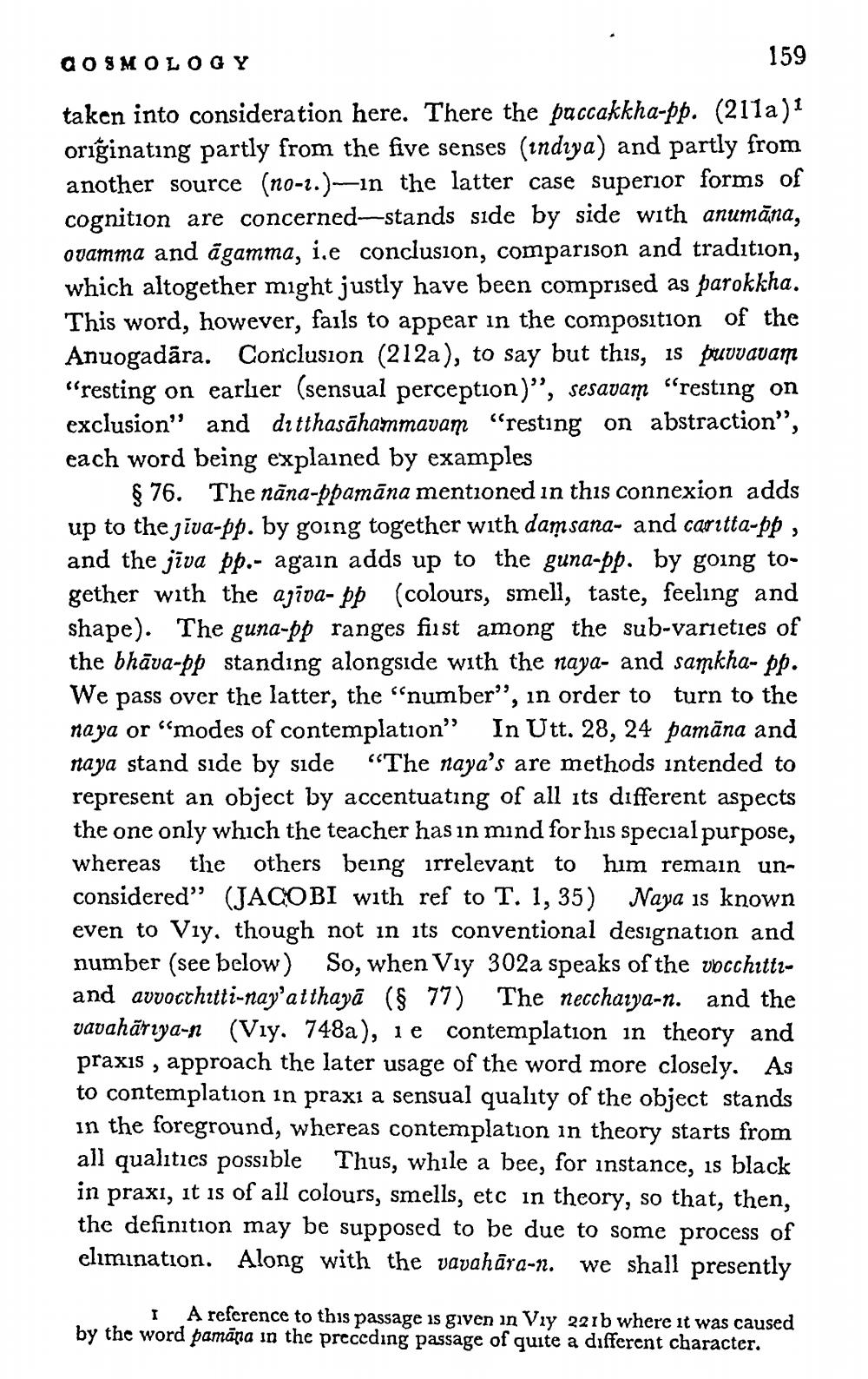________________
COSMOLOGY
159 taken into consideration here. There the paccakkha-pp. (211a)1 originating partly from the five senses (indiya) and partly from another source (10-2.)--in the latter case superior forms of cognition are concerned stands side by side with anumāna, ovamma and ägamma, i.e conclusion, comparison and tradition, which altogether might justly have been comprised as parokkha. This word, however, fails to appear in the composition of the Anuogadāra. Conclusion (212a), to say but this, is purvavam "resting on earlier (sensual perception)”, sesavam "resting on exclusion" and ditthasāhammavam “resting on abstraction", each word being explained by examples
$ 76. The nāna-ppamāna mentioned in this connexion adds up to the jiva-pp. by going together with damsana- and caritta-pp, and the jīva pp.- again adds up to the guna-pp. by going together with the agiva- ÞÞ (colours, smell, taste, feeling and shape). The guna-pp ranges first among the sub-varieties of the bhāva-pp standing alongside with the naya- and samkha- pp. We pass over the latter, the number”, in order to turn to the naya or "modes of contemplation" In Utt. 28, 24 pamāna and naya stand side by side “The naya's are methods intended to represent an object by accentuating of all its different aspects the one only which the teacher has in mind for his special purpose, whereas the others being irrelevant to him remain unconsidered" (JACOBI with ref to T. 1, 35) Naya is known even to Viy, though not in its conventional designation and number (see below) So, when Viy 302a speaks of the vocchittzand avvocthitti-nay'atthayā ($ 77) The necchaiya-n. and the vavahāriya-n (Viy. 748a), ie contemplation in theory and praxis , approach the later usage of the word more closely. As to contemplation in praxi a sensual quality of the object stands in the foreground, whereas contemplation in theory starts from all qualities possible Thus, while a bee, for instance, is black in praxı, it is of all colours, smells, etc in theory, so that, then, the definition may be supposed to be due to some process of elimination. Along with the vavahāra-n. we shall presently
I A reference to this passage is given in Viy 221b where it was caused by the word pamāna in the preceding passage of quite a different character.




